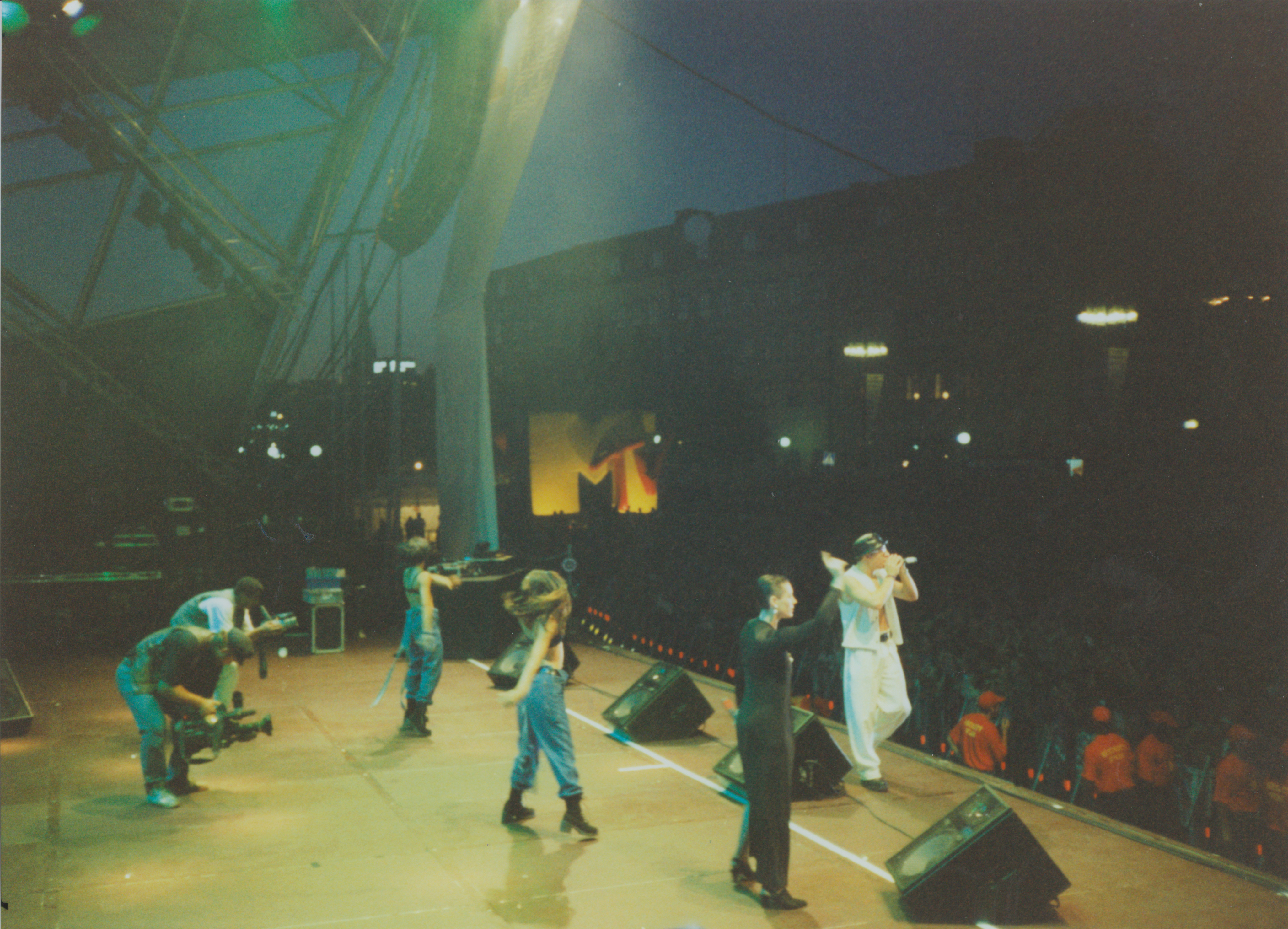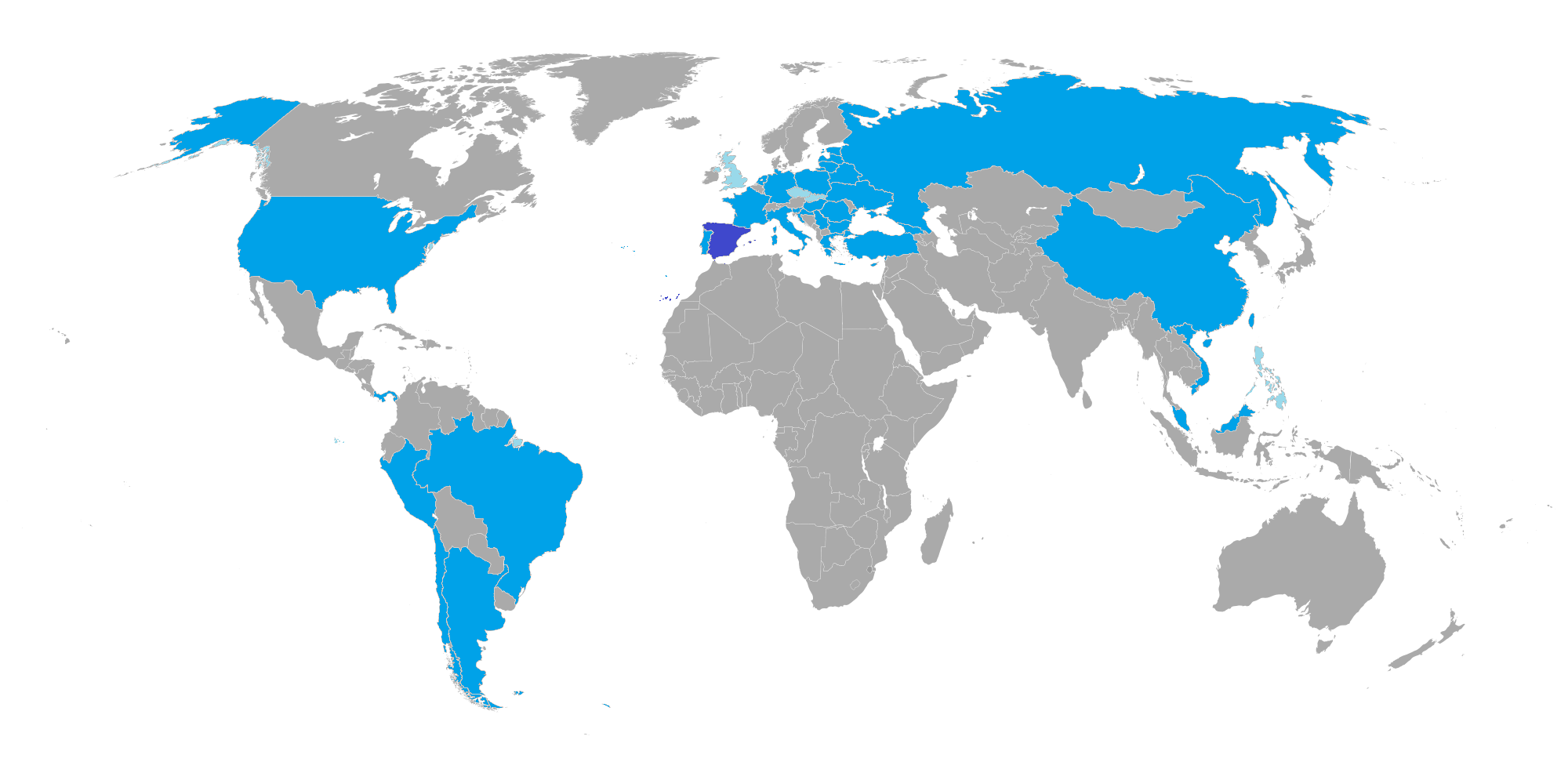|
I Can Make You Feel Like
"I Can Make You Feel Like" is a song by the German Eurodance project Maxx. It was selected as the fourth single from the project's debut album, '' To The Maxximum''. The single was released only in the United Kingdom in July 1995 and reached number 56 on the UK Singles Chart. In Estonia, the song is well-known for its cover by Üllar Jörberg entitled "Kutse tantsule" (). Because of this, it has become the subject of numerous parodies and covers in Estonia as well, the most well-known of which was performed by Tanel Padar on the TV show "Su nägu kõlab tuttavalt" (Estonia's adaptation of ''Your Face Sounds Familiar ''Your Face Sounds Familiar'' ( Spanish: ''Tu cara me suena'') is a Spanish interactive reality television franchise series where celebrity contestants impersonate singers. The format, similar to Dutch television series '' Soundmixshow'', was ...''). Track listing Credits * Engineer (mix) – Robert Lee * Engineer (recording) – Luke Steward * Instruments � ... [...More Info...] [...Related Items...] OR: [Wikipedia] [Google] [Baidu] |
Maxx (band)
Maxx is a German Eurodance project that was internationally successful in the mid-90s with the hit singles " Get-A-Way", " No More (I Can't Stand It)" and " You Can Get It". The name 'Maxx' is a special acronym for Maximum Xstasy. History Group origins (1993) The Maxx project was the result of the successful but short-lived collaboration between German record producer Juergen Wind (J. Wind) and German music executive David Brunner. After teaming together to release " Another Night" by M.C. Sar & The Real McCoy under Hansa Records/BMG Berlin, Wind and Brunner began collaborating with British songwriter Bruce Hammond Earlam (from Bruce & Bongo) to develop the debut Maxx single "Get-A-Way" under the record label Blow Up/ Intercord. Earlam wrote the raggamuffin rap lyrics for the new single while simultaneously teaching Maxx rapper Boris Köhler how to rap in the raggamuffin style. Due to his contractual issues with EMI, he had to write for the project without being publicly cre ... [...More Info...] [...Related Items...] OR: [Wikipedia] [Google] [Baidu] |
To The Maxximum
''To the Maxximum'' is the debut album by the German Eurodance project Maxx. The album was first released in June 1994 in Germany via Blow Up and Intercord. The album was also released in Scandinavia via Remixed Records and in the UK via Pulse 8 records. The hits " Get-A-Way", " No More (I Can't Stand It)" and " You Can Get It" are all featured on the album. Critical reception Pete Stanton from ''Smash Hits'' gave ''To the Maxximum'' four out of five and named it Best New Album, writing, "Maxx haven't created a startling new path for dance music, but they've done pretty well. As you know, " Get-A-Way" is a blinding ragga corker, as is the follow-up " No More (I Can't Stand It)". But the fun doesn't stop there. "I Can Make You Feel Like "I Can Make You Feel Like" is a song by the German Eurodance project Maxx. It was selected as the fourth single from the project's debut album, '' To The Maxximum''. The single was released only in the United Kingdom in July 1995 and reached numb ... [...More Info...] [...Related Items...] OR: [Wikipedia] [Google] [Baidu] |
Music Week
''Music Week'' is a trade publication for the UK record industry distributed via a website and a monthly print magazine. It is published by Future. History Founded in 1959 as ''Record Retailer'', it relaunched on 18 March 1972 as ''Music Week''. On 17 January 1981, the title again changed, owing to the increasing importance of sell-through videos, to ''Music & Video Week''. The rival '' Record Business'', founded in 1978 by Brian Mulligan and Norman Garrod, was absorbed into Music Week in February 1983. Later that year, the offshoot ''Video Week'' launched and the title of the parent publication reverted to ''Music Week''. Since April 1991, ''Music Week'' has incorporated ''Record Mirror'', initially as a 4 or 8-page chart supplement, later as a dance supplement of articles, reviews and charts. In the 1990s, several magazines and newsletters become part of the Music Week family: ''Music Business International (MBI)'', ''Promo'', ''MIRO Future Hits'', ''Tours Report'', ''Fono ... [...More Info...] [...Related Items...] OR: [Wikipedia] [Google] [Baidu] |
You Can Get It
"You Can Get It" is a song by German Eurodance project Maxx, released by Blow Up and Intercord in September 1994 as the third single from the project's debut album, ''To the Maxximum'' (1994). The song peaked at number 21 in the United Kingdom, number 19 on the UK Dance Singles Chart, and number 13 in Finland. On the Eurochart Hot 100 and the European Dance Radio Chart, "You Can Get It" reached number 31 and 18. The accompanying music video for the song was filmed at Hotel Gellért, a spa hotel located in Budapest, Hungary. Critical reception James Hamilton from ''Music Weeks ''RM'' Dance Update described "You Can Get It" as a "catchy girls chanted and ragga guy rapped thunderous almost jungle tempo though cheesy 145.7 bpm Euro pounder". Jordan Paramor from ''Smash Hits'' wrote, "It shouts 2 Unlimited, it screams techno Techno is a genre of electronic dance music (EDM) which is generally produced for use in a continuous DJ set, with tempos being in the range from 120 to 15 ... [...More Info...] [...Related Items...] OR: [Wikipedia] [Google] [Baidu] |
Eurodance
Eurodance (sometimes referred to as Euro-NRG) is a genre of electronic dance music that originated in the late 1980s in Europe. It combines many elements of Hip-hop, rap, techno and Eurodisco. This genre of music is heavily influenced by the use of rich vocals, sometimes with Rapping, rapped verses. This, combined with cutting-edge synthesizers, strong Bass (sound), bass rhythm and melodic Hook (music), hooks, establishes the core foundation of Eurodance music. History Background Eurodance music originated in the late 1980s in central Europe, especially in Germany, where rave parties were becoming popular. By 1987, a German party scene was started, based on the well established Chicago house sound and Belgian new beat. The following year saw acid house making a significant impact on popular consciousness in Germany and central Europe as it had in England. In 1989, German DJs Westbam and Dr. Motte established the Ufo (Club, Berlin), Ufo Club, an illegal party venue, and co-founded ... [...More Info...] [...Related Items...] OR: [Wikipedia] [Google] [Baidu] |
Maxx (eurodance Act)
Maxx is a German Eurodance project that was internationally successful in the mid-90s with the hit singles " Get-A-Way", " No More (I Can't Stand It)" and " You Can Get It". The name 'Maxx' is a special acronym for Maximum Xstasy. History Group origins (1993) The Maxx project was the result of the successful but short-lived collaboration between German record producer Juergen Wind (J. Wind) and German music executive David Brunner. After teaming together to release " Another Night" by M.C. Sar & The Real McCoy under Hansa Records/BMG Berlin, Wind and Brunner began collaborating with British songwriter Bruce Hammond Earlam (from Bruce & Bongo) to develop the debut Maxx single "Get-A-Way" under the record label Blow Up/ Intercord. Earlam wrote the raggamuffin rap lyrics for the new single while simultaneously teaching Maxx rapper Boris Köhler how to rap in the raggamuffin style. Due to his contractual issues with EMI, he had to write for the project without being publicly cre ... [...More Info...] [...Related Items...] OR: [Wikipedia] [Google] [Baidu] |
Estonia
Estonia, officially the Republic of Estonia, is a country in Northern Europe. It is bordered to the north by the Gulf of Finland across from Finland, to the west by the Baltic Sea across from Sweden, to the south by Latvia, and to the east by Russia. The territory of Estonia consists of the mainland, the larger islands of Saaremaa and Hiiumaa, and over 2,300 other islands and islets on the east coast of the Baltic Sea. Its capital Tallinn and Tartu are the two largest List of cities and towns in Estonia, urban areas. The Estonian language is the official language and the first language of the Estonians, majority of its population of nearly 1.4 million. Estonia is one of the least populous members of the European Union and NATO. Present-day Estonia has been inhabited since at least 9,000 BC. The Ancient Estonia#Early Middle Ages, medieval indigenous population of Estonia was one of the last pagan civilisations in Europe to adopt Christianity following the Northern Crusades in the ... [...More Info...] [...Related Items...] OR: [Wikipedia] [Google] [Baidu] |
Üllar Jörberg
Üllar "Jörpa" Jörberg (; 9 June 1941 – 26 December 2018) was an Estonian singer. Biography In school, he sang in a choir as well as an all-male vocal quartet. He graduated from Viljandi Secondary School No. 2 in 1961. Prior to serving in the Soviet Army, he studied physical education at the University of Tartu. He started singing professionally in 1967, playing solo gigs at the Kaseke restaurant in Tartu. He also later performed with the band Fix (musical group), Fix. He released dozens of records and over 600 songs over the span of his career; predominantly dance music. Many of his hits were Estonian-language translations of popular songs in other languages, but he did have some well-known originals as well. According to ''Kroonika'', his best-known songs include ''Mereranna tuul'' (; an Estonian-language cover of "Agadoo") and ''Kutse tantsule'' (; an Estonian-language cover of "I Can Make You Feel Like"). In 2014, TV3 (Estonia), TV3 made a documentary about him named ... [...More Info...] [...Related Items...] OR: [Wikipedia] [Google] [Baidu] |
Tanel Padar
Tanel Padar (born 27 October 1980) is an Estonian singer and songwriter. He is best known internationally for winning the Eurovision Song Contest 2001. Padar became famous by winning the '' Kaks takti ette'', a biennial televised competition for young Estonian singers, in 1999. Career In 1999 Padar won '' Kaks takti ette'' a televised competition for young Estonian singers. In 2000, Padar was one of the backing vocalists for Ines – who at the time was also his girlfriend – at the Eurovision Song Contest 2000. In 2001, he, along with the boyband 2XL and Aruba Aruba, officially the Country of Aruba, is a constituent island country within the Kingdom of the Netherlands, in the southern Caribbean Sea north of the Venezuelan peninsula of Paraguaná Peninsula, Paraguaná and northwest of Curaçao. In 19 ...-born Dave Benton claimed the spotlight by winning the Eurovision Song Contest 2001 with the song " Everybody". In 2003 Padar started a rock band called Tanel Padar ... [...More Info...] [...Related Items...] OR: [Wikipedia] [Google] [Baidu] |
Your Face Sounds Familiar
''Your Face Sounds Familiar'' ( Spanish: ''Tu cara me suena'') is a Spanish interactive reality television franchise series where celebrity contestants impersonate singers. The format, similar to Dutch television series '' Soundmixshow'', was first used in Spain under the title '' Tu cara me suena'' in 2011. Format The show challenges celebrities to perform as different iconic music artists every week, which are chosen by the show's "Randomiser". They are then judged by the panel of celebrity judges. Each celebrity becomes transformed into a different singer each week, and performs an iconic song and dance routine well known by that particular singer. The "randomiser" can choose any older or younger artist available in the machine, or even a singer of the opposite sex, or a deceased singer. The contestants are awarded points from the judges based on their singing and dance routines. After the jury vote, the contestants have to give a set of points to a fellow contestant o ... [...More Info...] [...Related Items...] OR: [Wikipedia] [Google] [Baidu] |
1994 Singles
The year 1994 was designated as the " International Year of the Family" and the "International Year of Sport and the Olympic Ideal" by the United Nations. In the Line Islands and Phoenix Islands of Kiribati, 1994 had only 364 days, omitting December 31. This was due to an adjustment of the International Date Line by the Kiribati government to bring all of its territories into the same calendar day. Events January * January 1 ** The North American Free Trade Agreement (NAFTA) is established. ** Beginning of the Zapatista uprising in Mexico. * January 8 – '' Soyuz TM-18'': Valeri Polyakov begins his 437.7-day orbit of the Earth, eventually setting the world record for days spent in orbit. * January 11 – The Irish government announces the end of a 15-year broadcasting ban on the Provisional Irish Republican Army and its political arm Sinn Féin. * January 14 – U.S. President Bill Clinton and Russian President Boris Yeltsin sign the Kremlin accords, which stop th ... [...More Info...] [...Related Items...] OR: [Wikipedia] [Google] [Baidu] |



